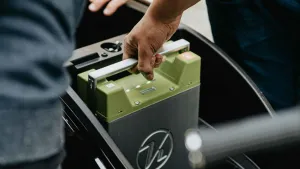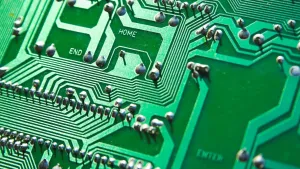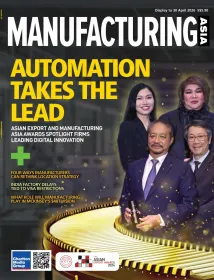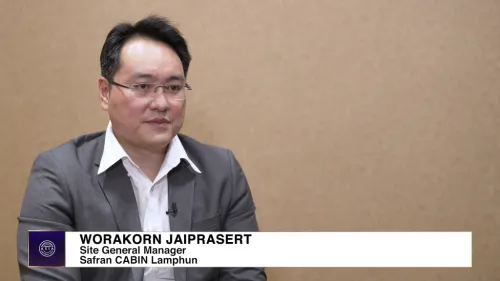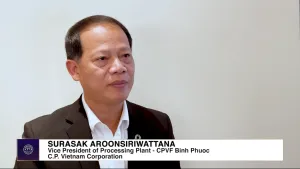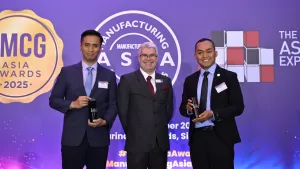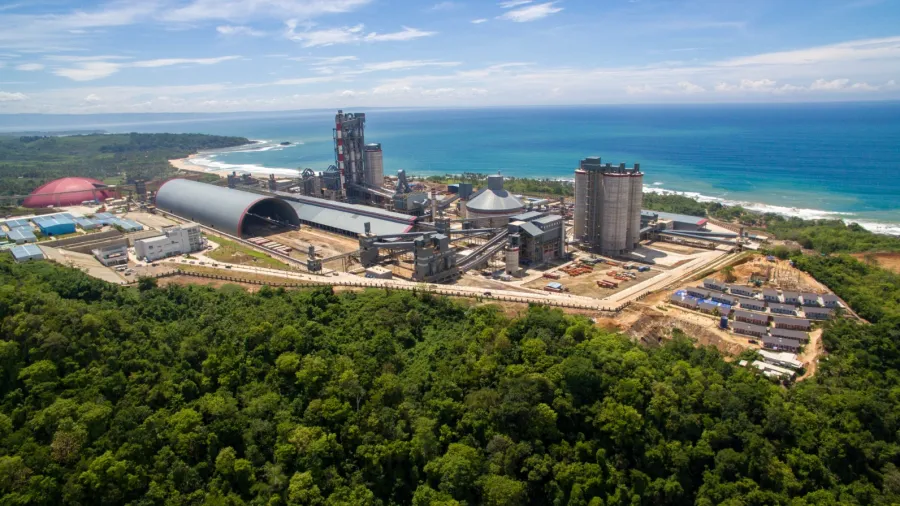
Semen Merah Putih prioritises use of renewable energy and alternative fuels
In 2023, the cement factory in Bayah reduced CO2 emissions by 5% and generated 85,702 MWh of electricity.
INDONESIA’S target for carbon neutrality by 2060 has put the industrial sector, which accounts for approximately 22% of the country’s greenhouse gas emissions, to work.
PT Cemindo Gemilang Tbk, producer of Semen Merah Putih brand cement, emerges as a proactive force in helping the government achieve its zero carbon ambitions.
Launched in 2012 to later become the third-largest seller of cement in Indonesia, the company now prioritises increasing the use of renewable energy and alternative fuels across all its operations.
With a production capacity of 6.4 million tons of clinker and 11 million tons of cement annually, they operate nine plants serving 17 provinces.
In 2022, Semen Merah Putih became Indonesia’s largest clinker exporter through its Bayah, Banten plant. That year, they also introduced Semen Merah Putih Watershield, the first PCC cement with Water Repellent technology, enhancing building quality in Indonesia.
Oza Guswara, general manager for Sales & Marketing of PT Cemindo Gemilang Tbk, said Semen Merah Putih is committed to becoming a global company focused on innovation and excellence in building materials.
Part of this push is to implement socially and environmentally responsible production practices and aim to improve HSSE (Health, Safety, Security, and Environment) quality for sustainable benefits to society and the environment.
Strategically, the company continues to optimise innovation and technology through the use of alternative fuels in production processes.
Reducing emissions
Through investments in environmentally friendly technology and sustainable practices, Semen Merah Putih's Bayah plant successfully reduced net specific CO2 emissions by 5% in 2023 compared to 2022, from 633 kg to 603 kg of CO2 per ton of equivalent cement.
This means each ton of cement produced in 2023 emitted 30 kg less CO2 than the previous year.
Oza explains that to reduce dependence on fossil fuels and shift to more sustainable energy sources, the Bayah plant has also increased the installation of Alternative Fuels Feeding (AF) in Kiln calciners to raise the Thermal Substitution Rate (TSR) to 5% by 2024.
This improvement is expected to achieve a 70,000-ton reduction in CO2 emissions, as more energy is sourced from alternative fuels like biomass or RDF, replacing conventional fossil fuels such as coal or natural gas in cement production.
Generating electricity
On the energy front, the Waste Heat Recovery System (WHRS) usage has also been optimised to convert waste heat into electricity, producing 85,702 MWh in 2023.
"Semen Merah Putih has demonstrated a strong commitment to reducing dependence on fossil fuels and transitioning to more sustainable energy sources,” said Oza.
“This step is expected to decrease CO2 emissions while optimising the use of Waste Heat Recovery System (WHRS) to generate environmentally friendly electricity. The company also continues to innovate in product development, focusing on reducing clinker usage to enhance operational efficiency and sustainability.”
Additionally, investments have been made to replace diesel trucks and forklifts with electric ones to further reduce CO2 emissions, Oza told Manufacturing Asia.
Semen Merah Putih is determined to reduce carbon emissions through alternative fuels, energy efficiency improvements, and eco-friendly products. Investments in modern technology will enhance energy efficiency across all factory operations.
“Sustainable practices such as responsible waste management, electric vehicle use, and reforestation programs will continue to be implemented and enhanced. We will also continue to engage local communities in sustainability efforts, including through community empowerment, education, and healthcare initiatives,” said Oza.
Acknowledging the importance of collaboration in addressing environmental challenges, the firm will continue to work with the government, non-governmental organisations, and other stakeholders to find joint solutions for sustainability.
“Through various innovations and investments, the company is committed to making a significant contribution to reducing the cement industry's carbon footprint in Indonesia as part of our corporate responsibility to help Indonesia achieve global climate targets,” Oza concluded.

